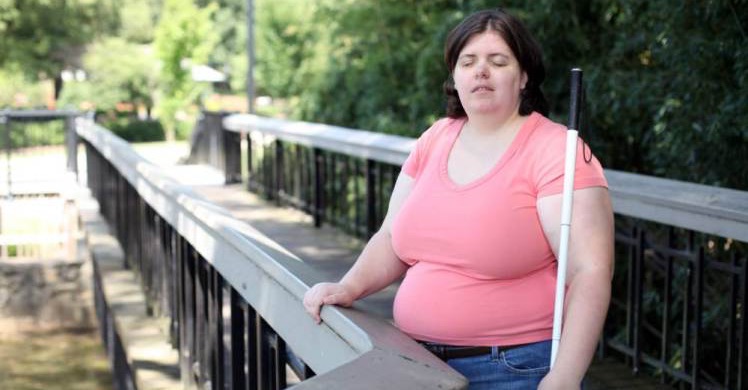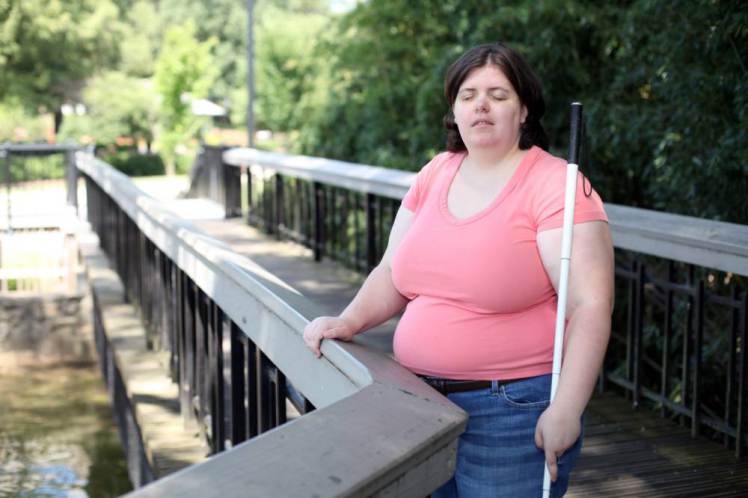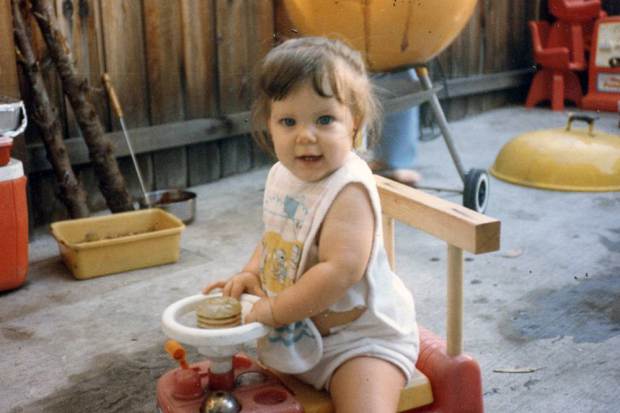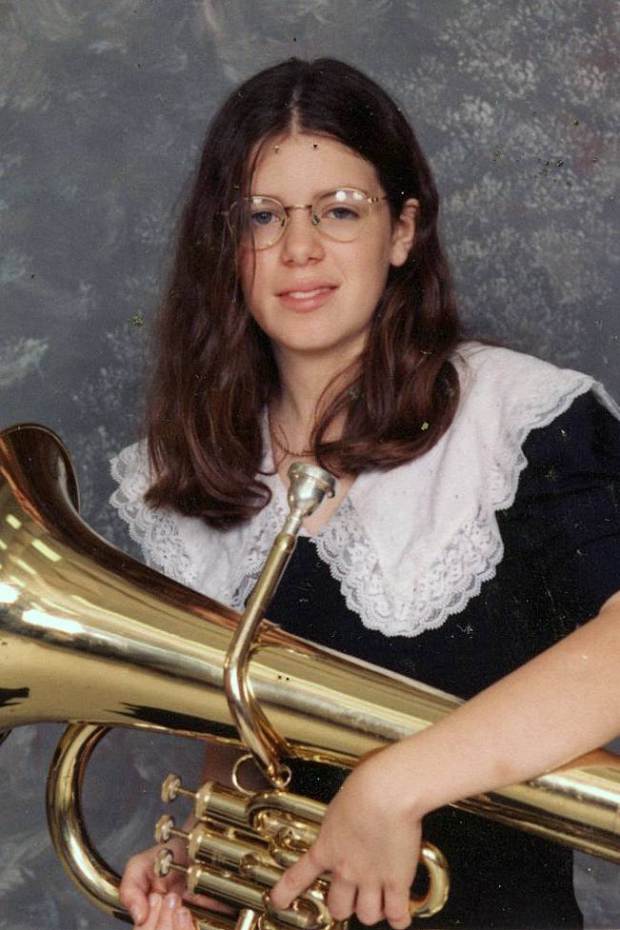Nine years ago, Jewel Shuping was blinded after drain cleaner was poured into her eyes. But, it wasn’t an accident.
Because Jewel, now 30, from North Carolina, suffers from Body Integrity Identity Disorder (BIID), a rare condition sometimes also referred to as amputee identity disorder, where people actually want to be disabled.
BIID more commonly manifests itself in a desire to amputate one or more healthy limbs, with sufferers saying they feel as though their limbs don’t belong to them.
Jewel’s desire to be blind was so strong she chose to take drastic action – helped by a sympathetic psychologist who poured the drain cleaner into her eyes.
It was the fulfillment of a life-long dream. As a child, she would pretend to be blind. She also wore dark glasses, used a white cane and became fluent in Braille by the age of 20.
‘My mother would find me walking in the halls at night, when I was three or four years old,’ she explains. ‘By the time I was six I remember that thinking about being blind made me feel comfortable.’
She says: ‘I was ‘blind-simming’, which is pretending to be blind, but the idea kept coming up in my head and by the time I was 21 it was a non-stop alarm that was going off.’
She finally found a psychologist in Canada willing to help her. They first poured numbing drops into her eyes, followed by a couple of drops of drain cleaner. It was, Jewel admits ‘extremely painful’.
It is not known whether the psychologist has faced prosecution for helping her, but medics at a nearby hospital later attempted to save her sight, against her wishes.
To no avail – and to Jewel’s relief.
‘When I had my sight I didn’t feel right. I feel bad for people who’re blind and aren’t happy, but this is what I want,’ she says. ‘I really feel this is the way I was supposed to be born, that I should have been blind from birth.’
She argues: ‘This is not a choice, it’s a need based on a disorder of the brain.’
However, while she is happier living as a blind person, she doesn’t recommend what she went through. ‘Don’t go blind the way I did. I know there is a need but perhaps someday there will be treatment for it,’ she says.
‘People with BIID get trains to run over their legs, freeze dry their legs, or fall off cliffs to try to paralyse themselves. It’s very very dangerous. And they need professional help.’
She is now sharing her story to raise awareness of the condition and encourage others to seek that help.





